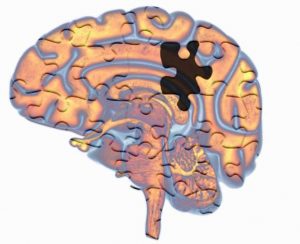What REALLY Causes Autism?
There is a fabulous article called Researchers have ditched the autism-vaccine hypothesis. Here’s what they think actually causes it that can be found HERE. I suggest you head there to read it, but it’s a tad long and heavy so if you’re wanting the quick version I’ve broken it way down and summarized for you:
The autism-vaccine link has been exhaustively researched more than nearly any other issue. The link suggested by Andrew Wakefield, British clinician and researcher, has been discredited buy the scientific community. His theory that the Measles, Mumps, and rubella (MMR) vaccine caused autism is continuing to be debunked by large-scale studies following thousands of participants in many countries.
Mayo Clinic autism researcher Dr. Sunil Mehta believes that researchers can now say with certainty that vaccines do not cause autism.
The social isolation link to autism is another theory that has also been disputed.
People are more frustrated than ever.
So what have researchers come up with?
Researchers say that if you have autism, you’re probably born with it.
About 1 in 68 US children has autism (rate unchanged since before 1990), however there has been a steady increase in diagnosis and awareness. And researchers and doctors have gotten much closer to finding the cause(s) of autism.
First and foremost, there is definitely a genetic link.
It looks like genetics can account for 50% of the risk for autism with about 100 genes now implicated.
Recent advances suggest genetic mutations change the biology of the brain in ways that can cause autism symptoms. Defects in an individual neuronal protein could be a potential cause.
Genetics is probably more important than non-genetic (environmental) factors, however research into environmental factors is blurry.
Not everyone with these mutations has autism. In many cases you need the underlying genetic predisposition/mutation to collide with a range of environmental risk factors.
In the scientific community we call these factors (including the genetic predisposition) “hits”. The more hits you have, the more likely the chances of a particular disease or disorder. In this case it may take several hits to equal an autism diagnosis.
Experiments involving environmental factors are hard to conduct and control, so at this point many of these factors are theories. There are many proposed environmental factors that may be involved.
Much of the theories involve hits during prenatal development that causes brain irregularities in children with autism.
There is strong evidence that if a mother is infected with rubella during pregnancy there is an increased risk of autism in her child, much more so than other viruses researched.
Another strong link is the mother’s use of certain medicines, which puts babies at increased risk of developing neurodevelopmental disorders, including autism.
Stress is another proposed prenatal factor that may affect the growing child, as well as heavy exposure to pesticides and air pollution.
The mother’s genetics could be another factor. Her genetics affect how her body responds to certain chemicals/environmental exposures, and thus may allow these things to circulate at different concentrations and affect her fetus.
Evidence to prenatal exposure of environmental factors leading to autism is much stronger than postnatal exposure. There is very little evidence that the insult to the brain occurs after birth.
Another hit: being a boy.
Four times as many boys get autism than girls. It takes fewer genetic mutations for boys to get autism. Somehow girls with severe autism-related genetic mutations are able to adapt to that hit and end up with no identifiable autism-like behaviors.
There’s also evidence that the gut microbiome interacts with the brain to contribute to the characteristics of autism, further complicating the understanding of the disorder.
Nurture vs. Nature, right?
No, it’s not one or the other. It’s probably a combination of both. Genetics most definitely plays a role in the autism diagnosis, but as far as environmental factors go, things are a little murky.
Parents can be very vulnerable to thevvaccine-autism hypothesis. It is much easier to believe that vaccines lead to autism than to accept the fact that there is a genetic-environmental combination of hits at play. We need to let the idea go that vaccines cause autism. This crippling fear of vaccines has brought back life-threatening diseases into our communities.


